What's Included
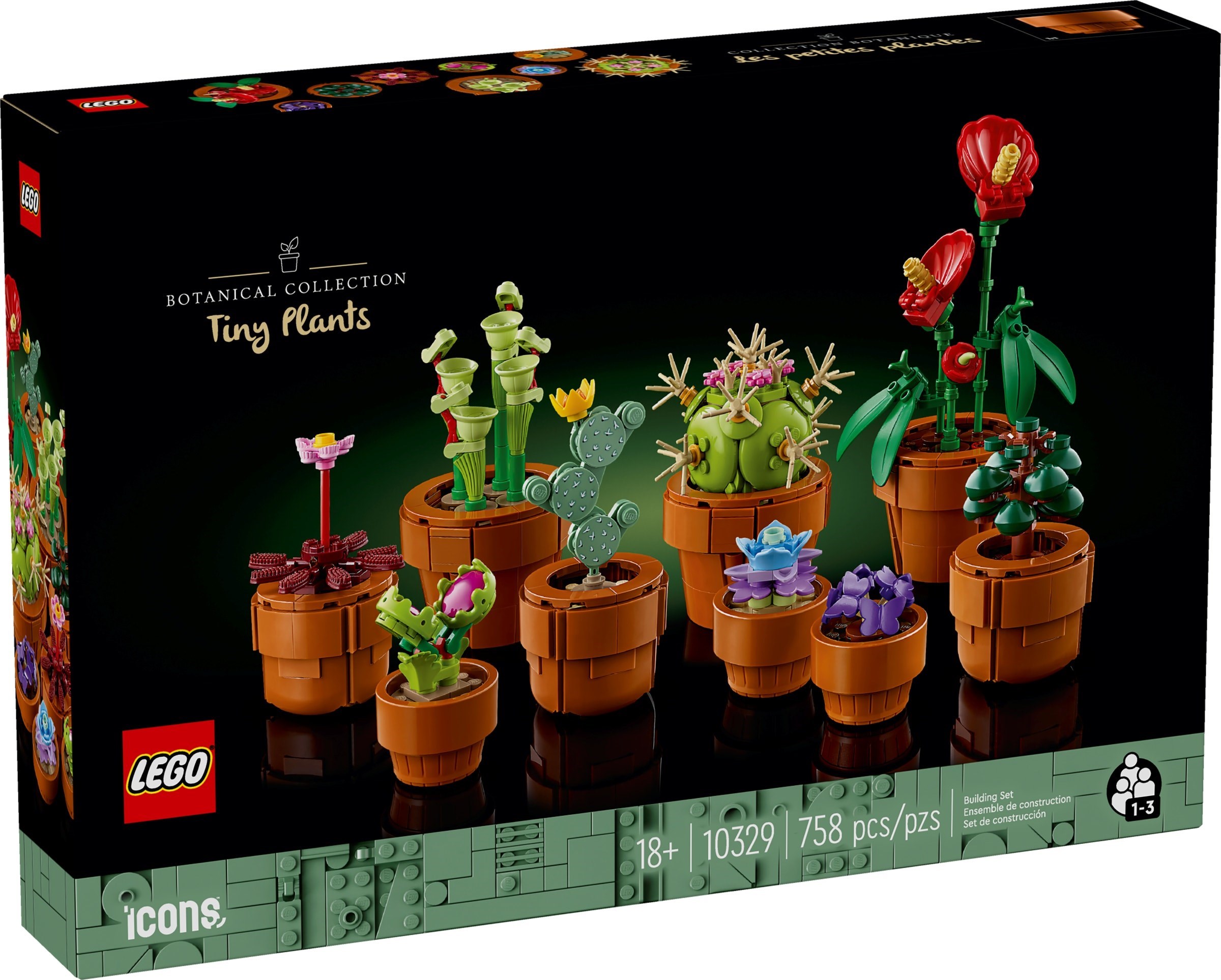
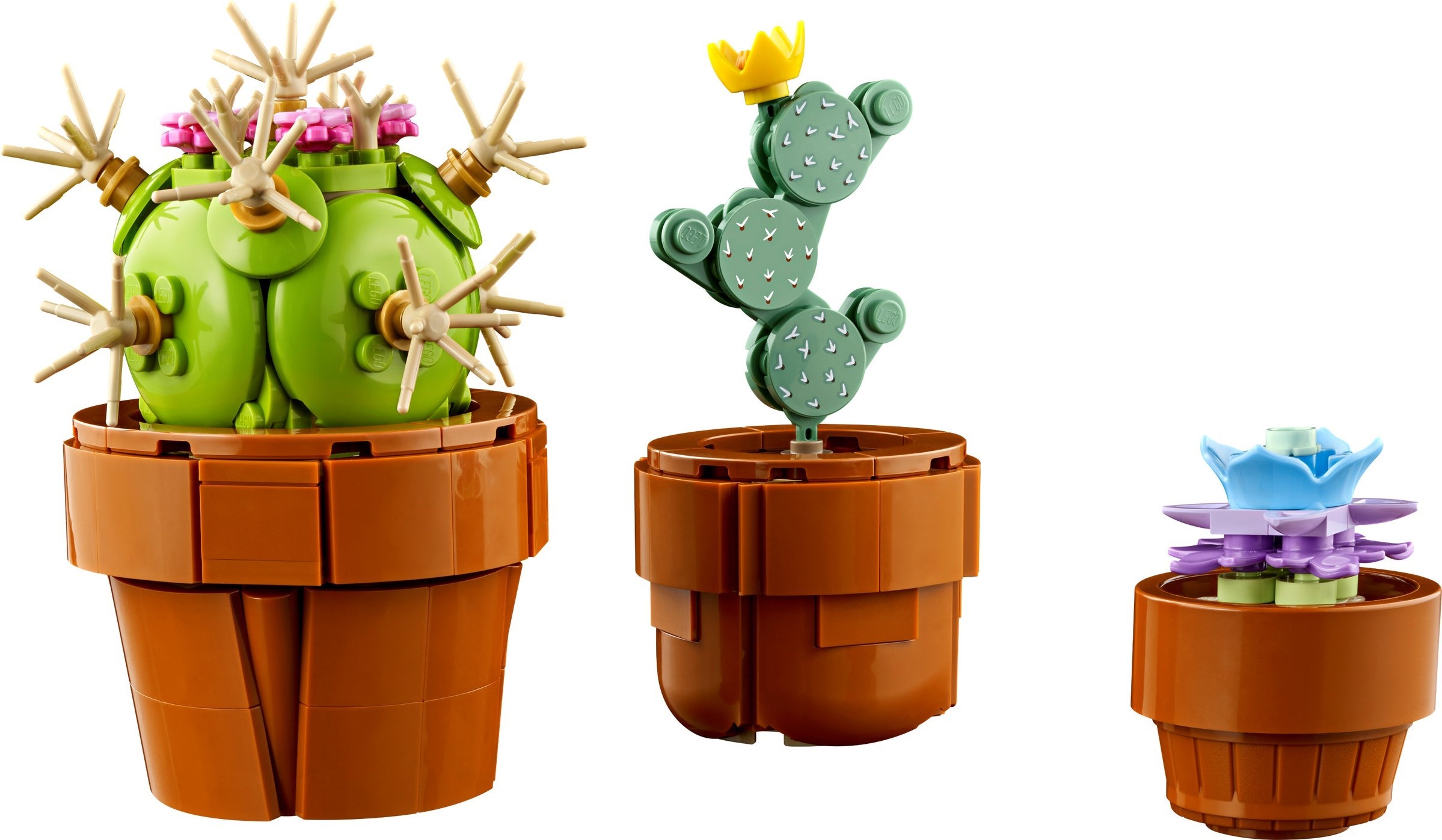
The 758-piece inventory creates nine distinct plants across three biomes, organized into small, medium, and large terracotta pots. Tropical specimens include the False Shamrock (Oxalis triangularis), Jade Plant (Crassula ovata), and Laceleaf (Anthurium andraeanum). Carnivorous varieties feature the Venus Flytrap, Yellow Pitcher Plant, and Red Sundew. Arid selections comprise a small succulent, Prickly Pear cactus, and Pincushion cactus. Each category receives identical pot sizes—small (3x3 studs), medium (4x4 studs), and large (6x6 studs)—constructed from dark orange elements with authentic drainage details. Notable recolored parts include lime green pith helmets, red hairbrushes, and printed cactus tiles eliminating sticker requirements.
Building Experience
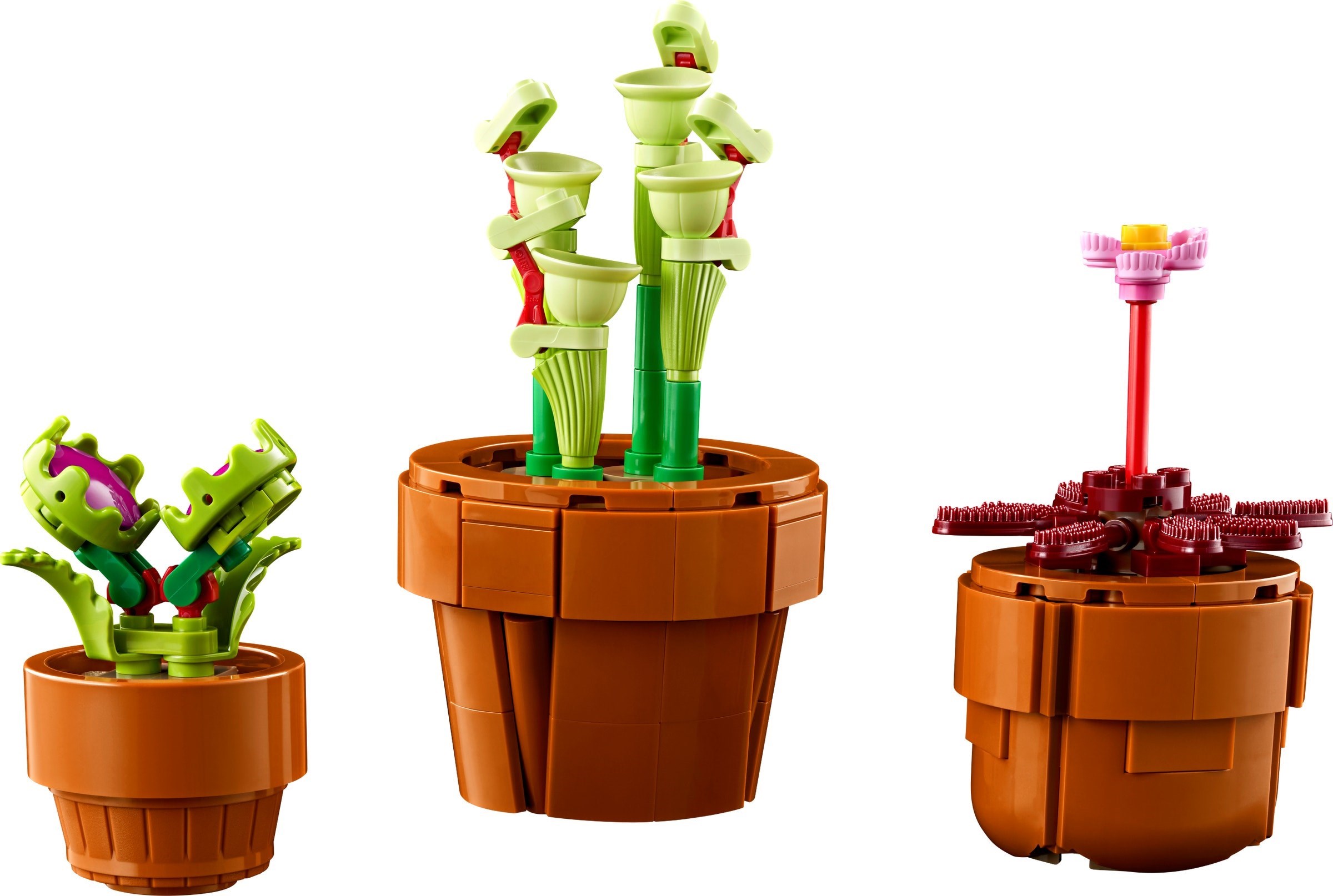
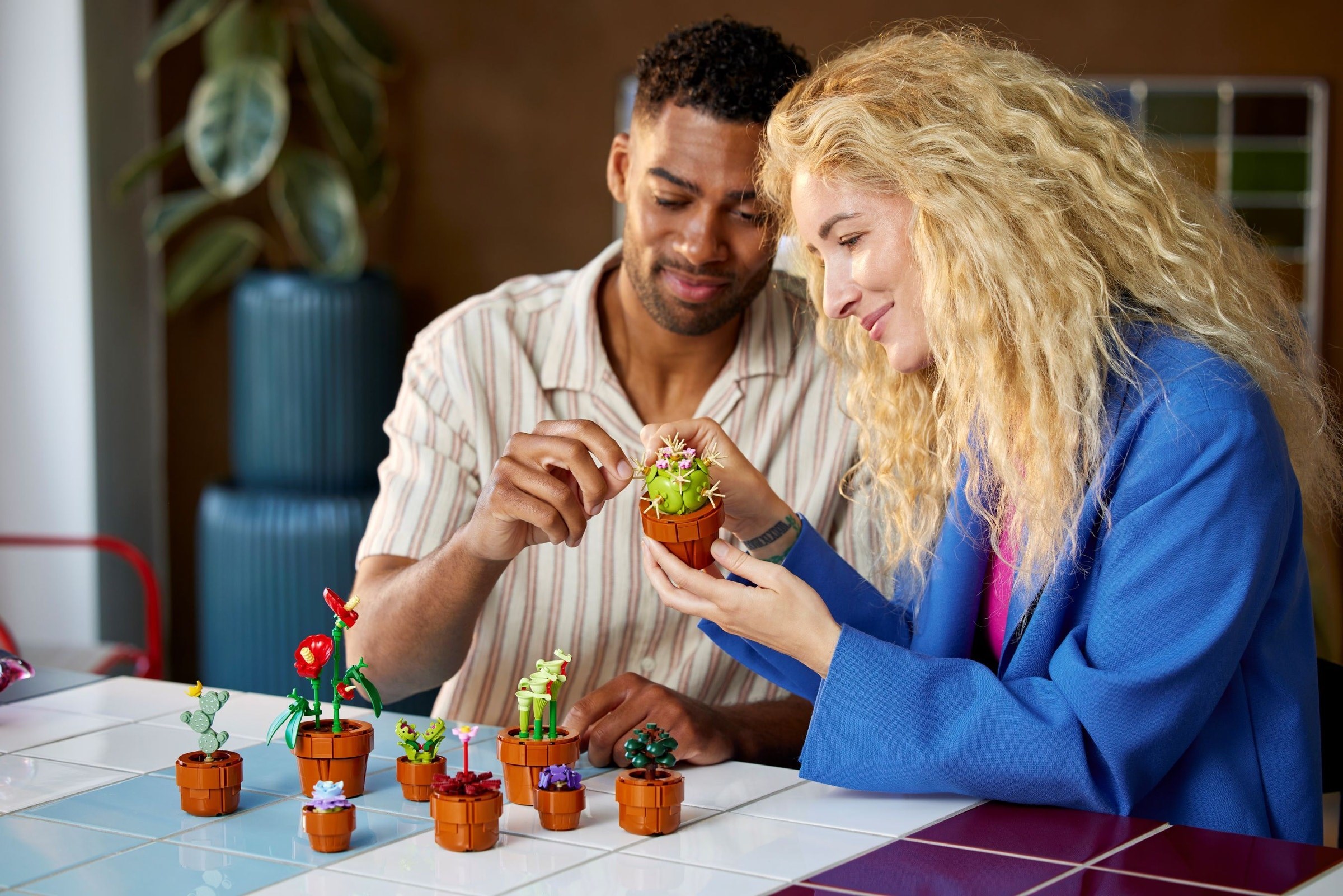
Construction time spans approximately 2-3 hours, though pot assembly consumes disproportionate building time. The repetitive pot construction—building three of each size—proves monotonous despite clever techniques using curved slopes and tiles for authentic terracotta texturing. Plant builds provide variety: the Venus Flytrap employs cake icing elements for toothy traps, the Pitcher Plant combines mop heads with inverted helmets, and the Pincushion Cactus utilizes Vidiyo rounded plates with new plant spine elements. The Red Sundew showcases particularly inventive NPU with hairbrushes representing sticky tentacles and pink pauldrons forming flowers. While individual plants offer engaging moments, the 18+ rating seems ambitious given the straightforward assembly and limited complexity compared to other botanical sets.
Design and NPU Mastery
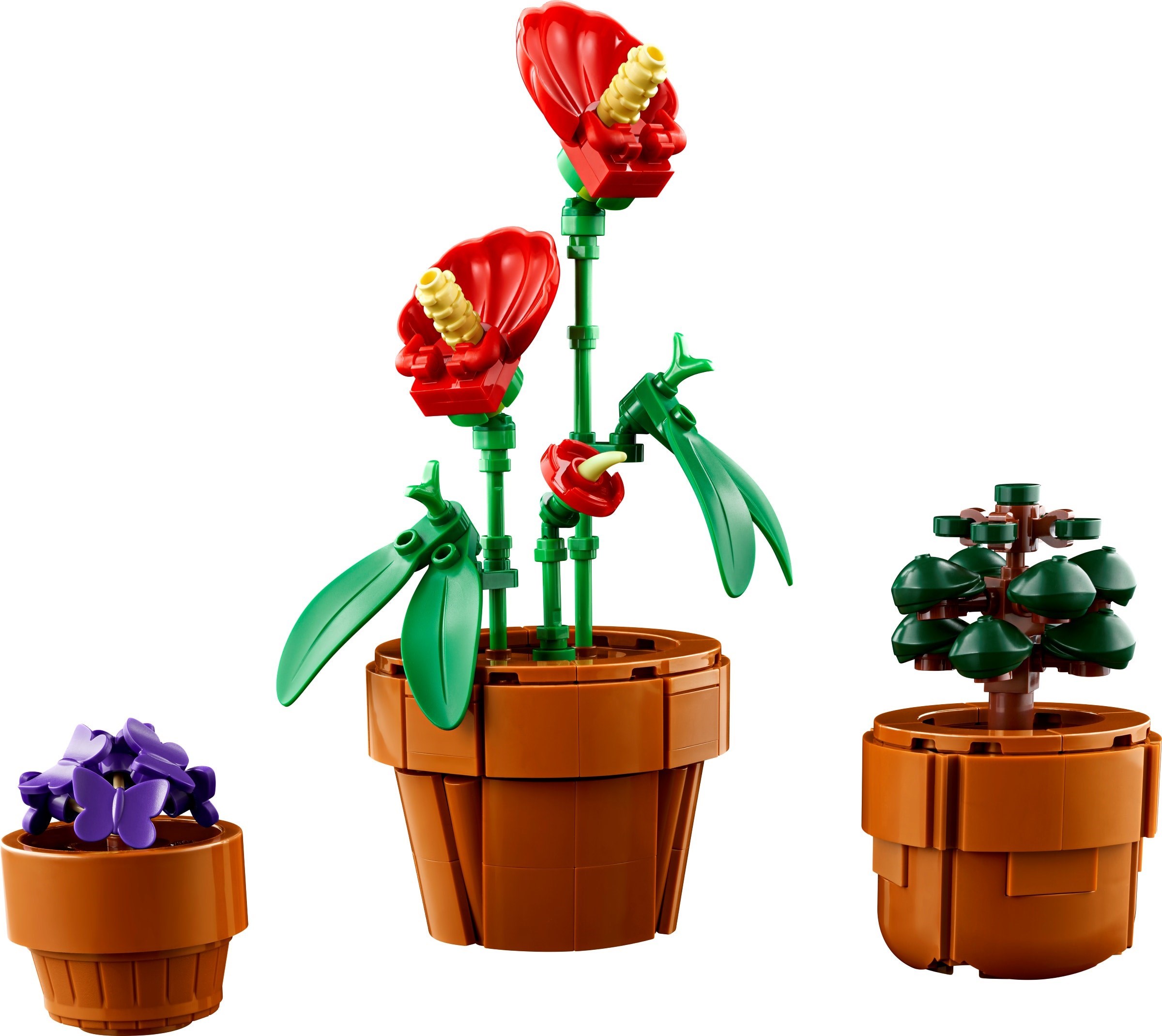
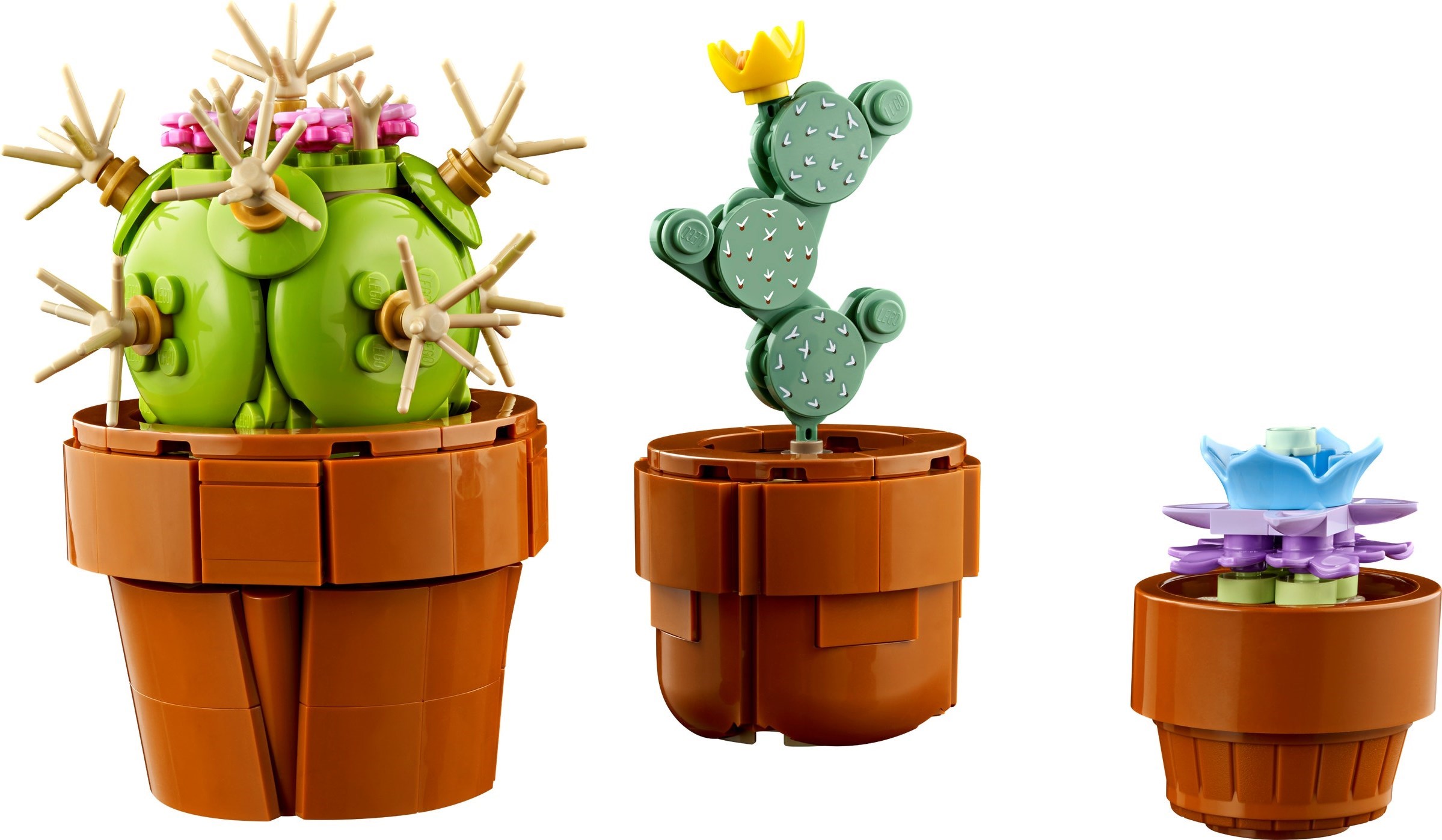
Creative part usage defines Tiny Plants' character, with each species demonstrating unexpected element applications. The Yellow Pitcher Plant's lime green pith helmet inverted atop a mop head perfectly captures the pitfall trap mechanism. Venus Flytrap jaws utilize gear elements with dripping icing pieces suggesting digestive fluids. The Prickly Pear benefits from exclusive printed tiles avoiding sticker frustration. Tropical plants employ butterfly elements, flower stems, and leaf pieces in new color combinations. The False Shamrock's purple triangular leaves achieve botanical accuracy through simple plate arrangements. Scale consistency across all nine plants ensures cohesive display despite species diversity. Terracotta pot coloring using dark orange maintains authenticity while providing neutral backdrop for vibrant plant colors.
Display Options and Modularity
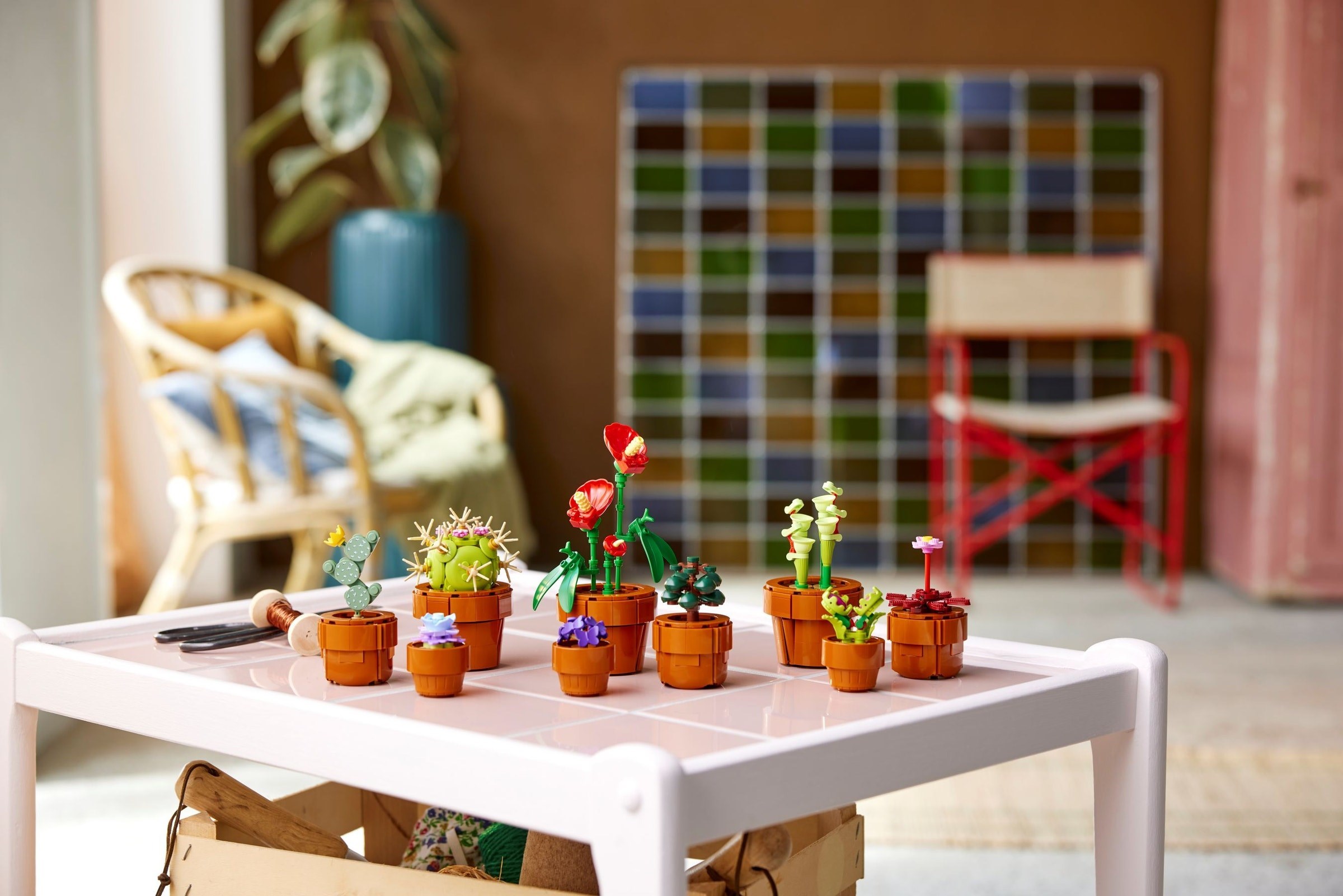
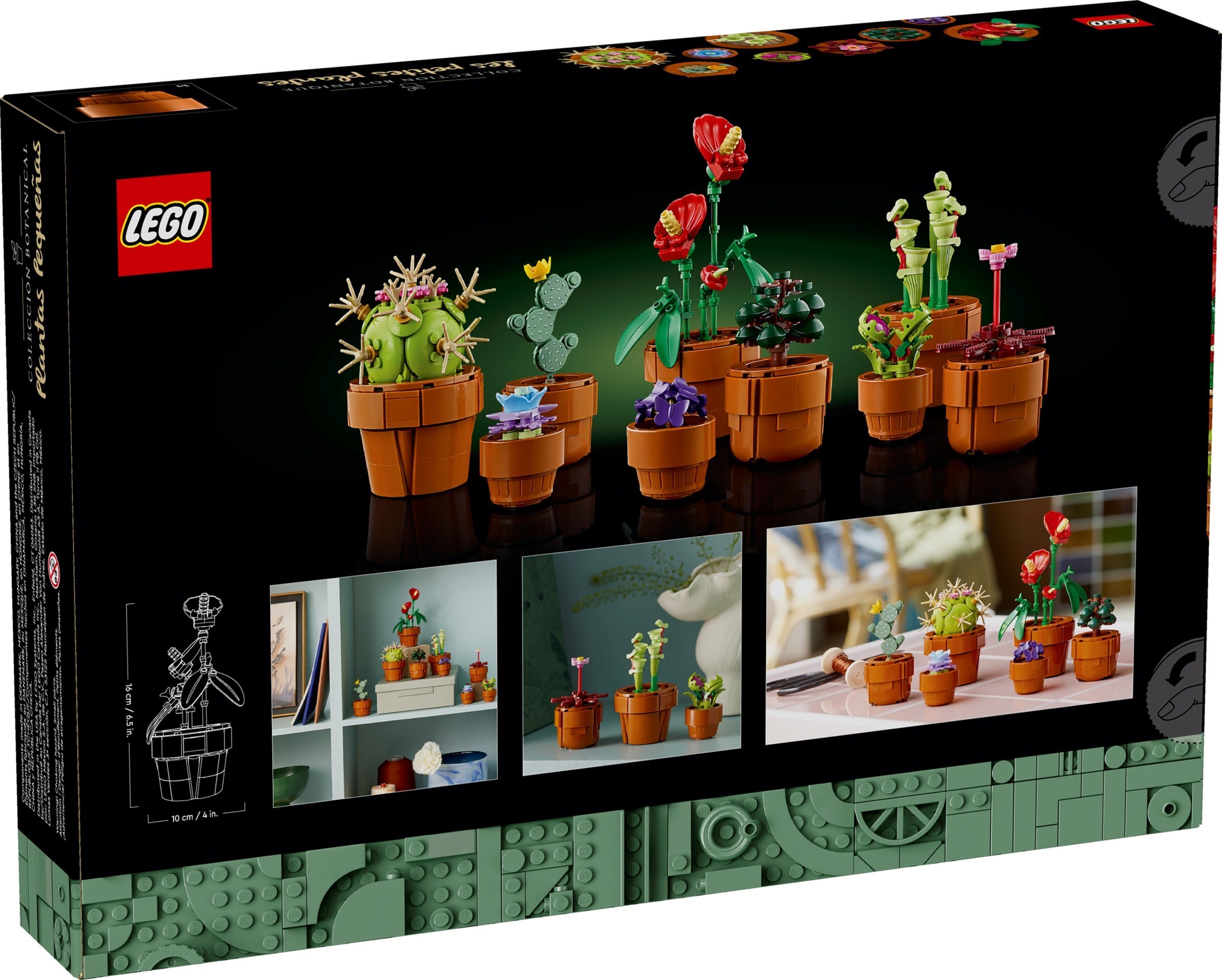
Compact dimensions enable versatile display arrangements across home and office environments. Individual pots measure 3-6 studs wide and 2-4 inches tall, perfect for desk decoration, shelf arrangements, or windowsill displays. The nine plants can be grouped by biome, scattered individually, or arranged in aesthetic patterns. Pot uniformity allows easy rearrangement while maintaining visual cohesion. The set pairs excellently with other Botanical Collection pieces, particularly the larger Succulents (10309), creating tiered botanical displays. Small footprints make these ideal for spaces where full-sized botanical sets overwhelm. The variety ensures at least one plant suits any decor style, from minimalist offices to eclectic living spaces.
Value Proposition and Market Analysis
At $49.99 USD (€49.99 EUR), the 6.6 cents per piece falls within LEGO's botanical pricing structure. Historical data reveals strong secondary market performance with prices ranging $31.99-54.82 across retailers. Sales rankings between 140-1960 indicate steady demand. Commonly available at $39.99 during promotions, representing 20% savings. Compared to Succulents (10309) offering similar piece counts but larger, more detailed plants at identical pricing, Tiny Plants feels premium for its scale. The emphasis on pot construction versus plant detail—with pots consuming majority of pieces—impacts perceived value. However, the variety of species, creative NPU techniques, and display flexibility partially offset size limitations. MOC builders benefit from unusual recolored elements unavailable elsewhere.
Editor's Verdict
What We Love
- Nine diverse plants across three biomes
- Exceptional NPU throughout (helmets, mops, brushes)
- Printed tiles instead of stickers
- Compact display footprint
- Unique recolored elements
- Pairs well with other Botanical sets
Room for Improvement
- Repetitive pot construction dominates build time
- High price for plant scale
- Limited complexity for 18+ rating
- Pots consume majority of pieces
- Less detailed than similarly priced Succulents set
LEGO Icons 10329 Tiny Plants succeeds as a botanical sampler showcasing creative building techniques across diverse species, though the $49.99 price point challenges value perceptions. The inventive NPU throughout—from pith helmet pitcher plants to hairbrush sundews—demonstrates LEGO's commitment to resourceful design over new molds. While pot repetition and limited plant scale may disappoint builders seeking complexity, the set's variety and display versatility appeal to collectors wanting botanical diversity without spatial commitment. At discounted prices around $39.99, Tiny Plants becomes considerably more attractive, particularly for builders valuing unique parts and display flexibility over individual plant detail.